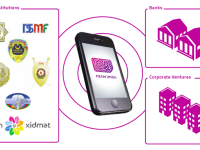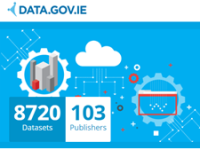This project presents the new approach in service delivery, through which we enabled deaf and hard of hearing persons to have an access to the most essential services, such as emergency call and civil registry services. Tireless engagement of deaf community in service design resulted in elaboration of user centered and People with Disabilities-tailored services, enabling beneficiaries to contact emergency services using a text-based or a video calling system and squire necessary civil documents…
Innovation Tag: Public Service Delivery
Innovative Complaint Management is changing an organizations understanding of complaints from looking at complaints as errors and faults to look at complaints as a potential for new solution to change the service of the municipality, and appreciatively receive complaints as a learning organization.
Case Study
MAGMA Indonesia (Multiplatform Application for Geohazard Mitigation and Assessment in Indonesia)
MAGMA Indonesia is an system that streamlines the process of geological hazard mitigation. It raises the bar on the standard of data monitoring and management for Indonesian government agencies. MAGMA digitizes relevant geological data into integrated databases, making them easier to analyze and use. Frequent readings and analytics can now be made ready in an almost-real-time manner. As a public service, MAGMA makes geological hazard mitigation and assessment available for free, anytime and…
Case Study
G2C (Government-to-Citizen): A Mobile Cross-Sectoral Public Service Delivery Model in Fiji
G2C (Government-to-Citizen), a cross-sectoral public service delivery innovation in Fiji, employs mobile units to deliver socio-economic and legal services to the vulnerable in remote areas. Fostering public agency interconnectedness, this innovation adopts a systemic approach, with efficiencies for citizens. A mobile app, the Start-to-Finish Service Delivery Tracker (S2F), is being developed.
My Open Library is a customer service delivery project which extends public library opening hours from 8.00 am to 10.00 pm, seven days per week. New technology allows users to access the buildings and services at times that suits them best.
A collaboration between government and community, Systemic Design eXchange (SDX) is an Edmonton-based community of practice for people interested in learning about systemic design as a methodology for addressing complex, real world issues. Together, we explore systems thinking, design thinking, and change lab approaches. With a bias towards learning by doing, SDX aims to be a watering hole where multiple sectors can come together, learn together, and act together.
The Korean government has implemented a program dubbed the One-stop Customized Lifecycle Services (OCLS) for heirs and expectant mothers, which was created by integrating existing services. With the OCLS in place, people no longer have to visit multiple government offices and they can take care of various issues at once. The government has also benefited from reduced costs and plans to emulate this success in other areas.
Ireland’s Open Data Initiative (ODI) is a key element of the government’s Public Service Reform activities. It aims to increase transparency, stimulate new business, build trust in Government and improve the lives of citizens by delivering better services. The ODI involves significant engagement with citizens, business, the data community, researchers and public bodies. Over 8700 datasets from 100 publishers are available on the ODI Portal which provides free access to data via a central…
The Digital Mobile Key is the Portuguese mobile eID solution, for secure authentication in public & private websites.
Instead of relying on different usernames/passwords for each entity, or using their eID Card, citizens now use the Digital Mobile Key, made of a single 4 digits PIN + an OTP(by SMS, email or messaging platform), or a push notification (Digital Mobile Key app)
In addition to authentication, Digital Mobile Key also allows digital signatures, both in a personal or a professional…
Case Study
National digital Identity and legally binding e-signatures based on Mobile-ID technology branded…

Asan Imza is the world’s fastest growing national digital identity in the form of Mobile-ID, which is secure, trusted and issued by the government of Azerbaijan. Based on PKI (a public key infrastructure) it is an irreplaceable tool empowering across all sectors, from public to private, including financial institutions and Mobile Network Operators, allowing to digitally verify your identity and create signatures equal to handwritten counterparts, regulated by law.



